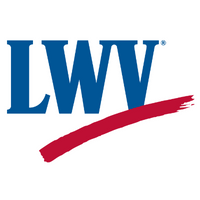LWVPA Statement On HR 1100
The League of Women Voters of Pennsylvania celebrates the heroic work of county commissioners, election officials and staff, and the Department of State in administering a safe, secure election of record turnout in the midst of a global pandemic and unprecedented national attention.
We urge our legislators to commend that accomplishment, rather than add further work in a way that wastes taxpayer dollars and undermines confidence in the election processes already in place. For that reason, we oppose House Resolution 1100.
Act 35 of 2020 required an audit of the June 2020 primary, with specific information prepared and delivered in a timely manner by PA DOS and election officials. That report provided recommendations to improve the process for the general election. Despite repeated requests from the PA DOS, the PA County Commissioner Association and county commissioners from all parts of the state, top recommendations from that audit were not put in place. This led to unnecessary delays, confusion and the opportunity for inaccurate messaging about the 2020 election.
The Department of State has already made clear an intention to provide a similar audit of the 2020 general election. House Resolution 1100 would require a duplicative audit, adding extra work and confusion for election officials who have already gone above and beyond in ensuring the integrity of the election and subsequent time-consuming count.
HR 1100 would also burden the Legislative Budget and Finance Committee with a task outside of their appropriate purview. Without question, that committee already has significant work to do in addressing historic budget shortfalls. There is no reason to ask that committee to weigh in on election administration or to undertake the time-consuming task of attempting a complicated audit outside their area of expertise.
HR 1100 is even further duplicative in that Act 12 of 2020 created a bipartisan Pennsylvania Election Law Advisory Board, with membership to include the Secretary of the Commonwealth, legislative majority and minority leaders, plus appointees from every congressional district chosen to ensure bipartisan representation from voting rights and disability rights groups as well as county commissioners and election officials. Those 23 members were unanimously confirmed by the Senate in September 2020. That board’s mandate is to identify needed legislative updates, collaborate to study election-related issues, study new election technology and voting machines, and make recommendations to improve the electoral process in the Commonwealth, implement best practices to ensure the integrity and efficiency of PA’s electoral process, and provide an annual report of findings.
Clearly there is much work to be done to address lack of clarity in Pennsylvania’s election code, review historical disparities in the ways elections are conducted across PA’s counties, and implement electoral best practices that have been tested and refined in many other states. HB 1100 is not the appropriate vehicle for this work.

